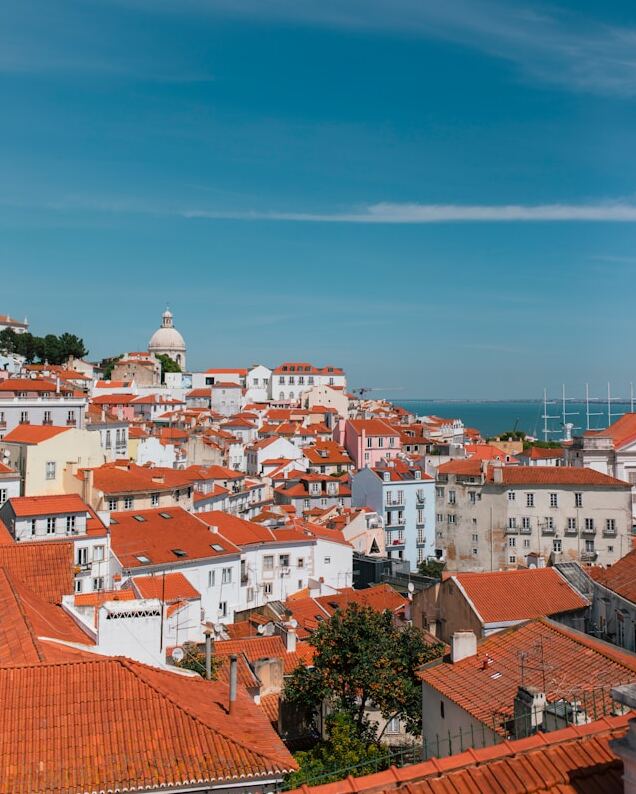Updated: January 24, 2025
Tourism is a staple of the Portuguese economy, with holidaymakers opting to visit Lisbon, Porto, the Algarve, and other stunning destinations such as the autonomous islands of Madeira and the Azores each year.
Portugal closed 2023 with a record 77 million overnight stays and €25 billion in tourist revenue, which represents a 10 percent growth and 37 percent growth, respectively, when compared with 2019, according to the National Statistics Institute (INE), the Bank of Portugal, and Turismo de Portugal.
This increase in the number of tourists continues to place the tourism sector at the center stage of Portugal’s economy. However, comparing this year to previous years, we can see that there are few tourist establishments available to purchase, likely due to the fact that fewer owners of tourist establishments are putting their properties up for sale as they seek to capitalize on the continually booming tourism market.
Fewer Tourist Establishments Available on the Market

This can be seen by the fact that there are 24 percent fewer tourist establishments for sale on Idealista, a rental and sales real estate platform, in February 2024, when compared to the same period in 2023. This is according to a study conducted by Idealista. Most of the properties available are located in Lisbon, Porto, and Faro, the capital of the Algarve region in Southern Portugal.
Apparently, following the COVID-19 pandemic, to which Portugal’s real estate market responded well and showed great resilience, with prices only falling slightly during this period, many owners placed their properties with tourist licenses on the market, bringing the number of hotel establishments for sale in Portugal to around 190 units in 2021 and 2022.
In 2023, disinvestment in tourist properties declined, a trend that can be seen even more clearly at the start of this year, 2024, whereby 136 tourist establishments were recorded for sale in February, representing a 24 percent drop when compared with last year.
As we mentioned, most of these establishments are concentrated in Faro (26), Porto (19), and Lisbon (16), while other locations with more than five tourist establishments for sale include Setúbal, Portalegre, Braga, and Viseu.
Tourist Establishments for Sale Falling in Key Districts
There is also a reduction in the stock of tourist accommodation in 11 of the 20 districts and the islands analyzed between February 2024 and February 2023, with the most significant drops being recorded in Lisbon, with a reduction in 14 units, Faro, which experienced a reduction in 11 units, Coimbra, a reduction of 7 units, and Viseu, which experienced a reduction of 6 percent.
However, there was an increase in the supply of hotel establishments in six districts and the autonomous islands of Madeira and the Azores, with the biggest increase in Beja in the Alentejo.
Also, in Viana do Castelo, in the north of Portugal and on the island of São Miguel in the Azores, the number of tourist accommodation establishments on the market increased from three to five over the past year, alongside Setúbal, Évora, and Guarda, which each registered one more tourist unit in the market compared with last year.
Potential for Lesser-Known Areas in Portugal to Gain Traction Amongst Tourists
While tourists have traditionally headed to Lisbon, Algarve, and Porto, there has been a growth in tourism across Portugal, with the regions that have registered the most growth being the North, Center, and Alentejo regions.
In an interview with the Portuguese newspaper, Expresso, the Secretary of State for Tourism, Nuno Fazenda, noted that Portugal has been experiencing structural changes, with more tourism being generated in interior areas and out of season. With an increase in eco-tourism, wine tourism, and wellness centers opening in interior areas, such as the Douro Valley, Alentejo, and Aljezur, it looks likely that these trends will continue in the coming years.
The slight increase in the supply of hotel establishments in lesser known districts, such as Beja and Évora, may also reflect this shift in tourists looking to enjoy the peace and tranquillity of the beautiful interior areas of Portugal.
